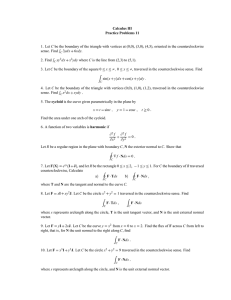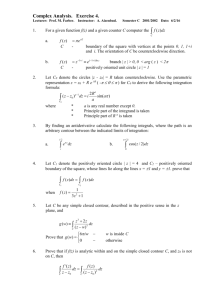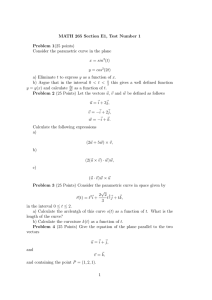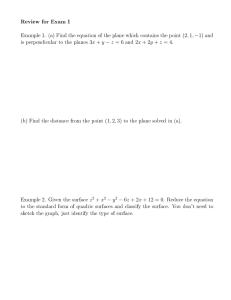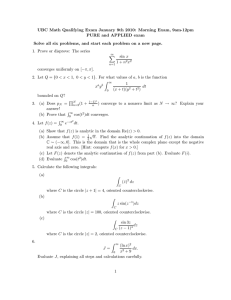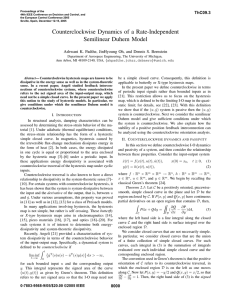Math 227 Problem Set IX Due Friday, April 1 H
advertisement
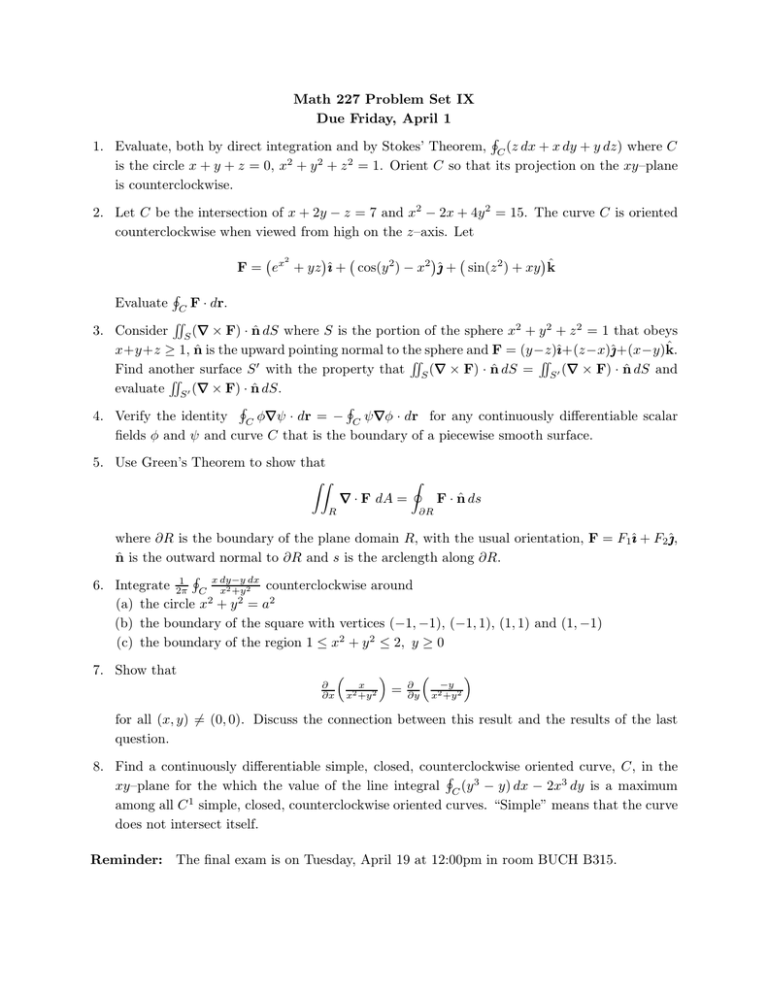
Math 227 Problem Set IX Due Friday, April 1 H 1. Evaluate, both by direct integration and by Stokes’ Theorem, C (z dx + x dy + y dz) where C is the circle x + y + z = 0, x2 + y 2 + z 2 = 1. Orient C so that its projection on the xy–plane is counterclockwise. 2. Let C be the intersection of x + 2y − z = 7 and x2 − 2x + 4y 2 = 15. The curve C is oriented counterclockwise when viewed from high on the z–axis. Let 2 F = ex + yz ı̂ı + cos(y 2 ) − x2 ̂ + sin(z 2 ) + xy k̂ Evaluate H C F · dr. RR ∇ × F) · n̂ dS where S is the portion of the sphere x2 + y 2 + z 2 = 1 that obeys 3. Consider S (∇ x+y+z ≥ 1, n̂ is the upward pointing normal to the sphere and F = (y−z)ı̂ı+(z−x)̂ +(x−y)k̂. RR RR ∇ × F) · n̂ dS and ∇ × F) · n̂ dS = S ′ (∇ Find another surface S ′ with the property that S (∇ RR ∇ × F) · n̂ dS. evaluate S ′ (∇ H H ∇φ · dr for any continuously differentiable scalar ∇ψ · dr = − C ψ∇ 4. Verify the identity C φ∇ fields φ and ψ and curve C that is the boundary of a piecewise smooth surface. 5. Use Green’s Theorem to show that ZZ ∇ · F dA = R I F · n̂ ds ∂R where ∂R is the boundary of the plane domain R, with the usual orientation, F = F1ı̂ı + F2̂, n̂ is the outward normal to ∂R and s is the arclength along ∂R. H x dy−y dx 1 counterclockwise around 6. Integrate 2π C x2 +y 2 2 2 (a) the circle x + y = a2 (b) the boundary of the square with vertices (−1, −1), (−1, 1), (1, 1) and (1, −1) (c) the boundary of the region 1 ≤ x2 + y 2 ≤ 2, y ≥ 0 7. Show that ∂ ∂x x x2 +y 2 = ∂ ∂y −y x2 +y 2 for all (x, y) 6= (0, 0). Discuss the connection between this result and the results of the last question. 8. Find a continuously differentiable simple, closed, counterclockwise oriented curve, C, in the H xy–plane for the which the value of the line integral C (y 3 − y) dx − 2x3 dy is a maximum among all C 1 simple, closed, counterclockwise oriented curves. “Simple” means that the curve does not intersect itself. Reminder: The final exam is on Tuesday, April 19 at 12:00pm in room BUCH B315.
